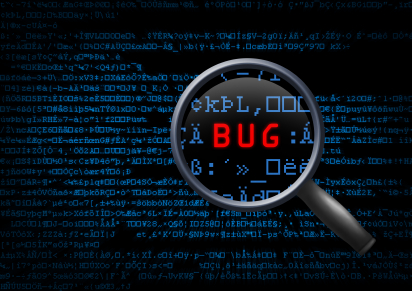Squashing release critical (RC) bugs is one of the most helpful way to contribute to Debian. Because those are the bugs that we need to get rid of in order to release the next stable version. Let’s see how you can help.

The process is really simple:
- Find a RC bug that you can fix
- Prepare a fixed package
- Send the patch to the BTS
- Get your fixed package uploaded
I have already covered points 2 and 3 in a former article: How to prepare patches for Debian packages. So I’m not going to repeat myself in this article, instead I’ll cover how to find a release critical bug to fix and how to get your package uploaded.
Find a RC bug with UDD
The Ultimate Debian Database (UDD) provides a neat interface to query the bug tracking system: http://udd.debian.org/bugs.cgi. The form contains many options to customize the query, we’ll try explain some.
First, at the top, you can decide to list bugs based on whether or not they affect testing/stable/unstable. Indeed, thanks to version tracking the BTS knows if a bug applies to the version of the package present in a given distribution. I suggest you pick a choice that includes “sid” because that’s where you’re going to push your fixed package. If sid is not affected by the bug, you can’t do much about it (except if you want to join the release team and help ensure updates are flowing from unstable to testing).
I usually go for “wheezy and sid” because that filters out packages which are not in testing (and are thus not blocking the next release).
Then you have lots of filters to further reduce the list of bugs. It’s important to reduce the noise as you typically have several hundreds of RC bugs at a given time. I suggest you the following settings for a start, but you’re free to try other combinations depending on what you want to achieve (I’ll give some examples later):
- ignore bugs tagged patch (a fix is already available);
- ignore bugs tagged pending (a fix has already been committed to the VCS repository);
- ignore bugs newer than 7 days (that’s the time we should leave for the maintainer to take care of the bug by himself);
I usually sort the results by source package so that I immediately see if several RC bugs are affecting the source package. And I might add “popularity contest” information to get a feel of whether the package is widely used or not.
You can see the results of the suggested query here.
Other interesting queries:
- List of RC bugs blocking the migration of their package (i.e. affecting unstable but not testing, with different version in both distributions).
- List of RC bugs on packages that you can adopt (i.e. bugs affecting any distribution but on orphaned packages, sorted by decreasing popularity).
Find a RC bug with rc-alert
The downside of the above method is that you get bugs on packages that you don’t know at all and that you might not care about. Some of them might even be better removed instead of fixed.
With the rc-alert command (provided by the devscripts package), you will get a list of RC bugs on packages that are installed on your computer. It should be much more restrictive. And you have command line options to further filter the list just like with the UDD form. Bonus feature: you can also filter by debtags allowing you to restrict the bugs to packages which are implemented in programming languages that you know.
$ rc-alert --include-dists TU --exclude-tags P+ --debtags implemented-in::perl,implemented-in::python Package: gwibber Bug: 608724 Title: gwibber bypasses certificate checking when providing the login/password for OAuth Flags: [ S ] (security) Dists: [STU] (stable, testing, unstable) Debtags: implemented-in::python, interface::x11, role::program, uitoolkit::gtk, works-with::im, x11::application [...]
Get your fixed package uploaded
Usually sending the patch to the BTS is more than enough. The maintainer or another Debian developer will pick it up at some point. But if you’re interested in becoming a Debian maintainer/developer, it might be worth to push your changes more quickly and get credited by a proper upload with your name.
Instead of just preparing a patch, you should also prepare a fixed package following the rules of a Non-Maintainer Upload. Put this package somewhere online (for example on mentors.debian.net).
When you send your patch to the BTS, include the link to the updated package and express your wish to get this update sponsored. If you haven’t heard anything from the maintainer after 2-3 days, try to find a sponsor on debian-mentors@lists.debian.org. NMUs are easier to review than completely new packages and many Debian developers like to kill RC bugs, so there’s a good chance that you’ll find someone.
Now happy RC bug-squashing! And if you really enjoy it, you can subscribe to debian-bugs-rc (~3000 mails per month)… 🙂
If you want to read more articles like this one, click here to subscribe to my free newsletter. You can also follow me on Identi.ca, Twitter and Facebook.


